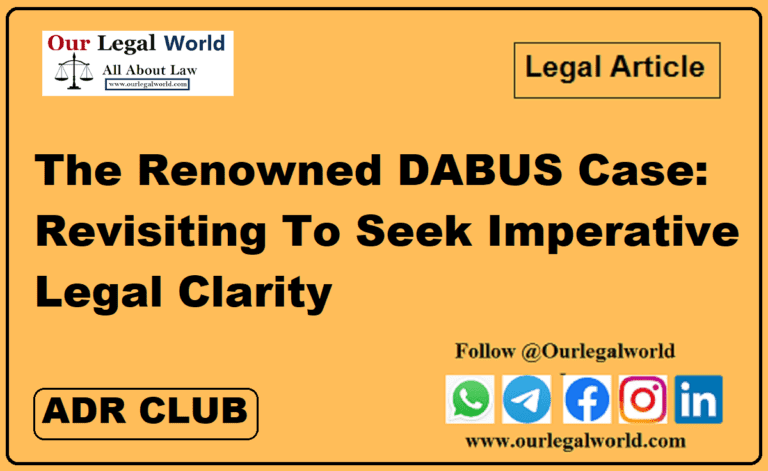BCCI case: Surinder Singh Barmi vs The Board Of Control For Cricket India 2017
Tribunal:Competition Commission of India Citation:Surinder Singh Barmi vs The Board Of Control For Cricket India 2017 Case No. 61/2010 Informant: Surinder Singh Barmi Opposite Party: The Board of Control for Cricket in India CORAM: Mr. Devender Kumar Sikri Chairperson Mr. S. L. Bunker Member Mr. U. C. Nahta Member Mr. Justice G. P. Mittal
Act, Status, etc. Competition act 2002, section 4, 19, 27
Decided on: 29 November, 2017
FACTS:
The Competition Commission of India (hereinafter, the “Commission”) had passed an order dated 8th February, 2013 under Section 27 of the Competition Act, 2002 (hereinafter, the “Act”) wherein the conduct of the Board of Control for Cricket in India (hereinafter, “BCCI”) was found to be in contravention of the provisions of Section 4 of the Act.
The Commission had found BCCI dominant in the market for the organization of private professional cricket leagues/events in India. The representation given by BCCI under clause 9.1(c)(i) of its IPL Media Rights agreement entered into with the broadcasters of Indian Premier League (“IPL”), that “it shall not organize, sanction, recognize, or support during the Rights period another professional domestic Indian T20 competition that is competitive to the league” was found to be an exercise of regulatory powers for arriving at a commercial agreement. The said conduct of BCCI was found to be in contravention of Section 4(2)(c) of the Act.
Aggrieved by the above order of the Commission, BCCI had preferred an appeal before the erstwhile Hon’ble Competition Appellate Tribunal (hereinafter, “COMPAT”). The COMPAT, vide its order dated 23rd February, 2015, had set aside the Commission’s aforesaid order dated 8th February, 2013 on the ground of violation of principles of natural justice.
Upon considering the matter, the Commission, vide its order dated 5th May, 2015, directed the Director General (hereinafter, ‘DG’) to conduct further investigation into the matter.
Findings of Supplementary Investigation by DG
The DG found the relevant market to be the market for ‘organization of professional domestic cricket leagues/events in India’. For arriving at such finding, the DG relied upon the pyramid structure of cricket governing bodies; different types of cricket matches; differences between sport and entertainment programmes broadcasted on television channels, cricket and other sports, and professional domestic cricket leagues and other formats of cricket; and the similarity of rules and regulations for organization of cricket events across India.
The supplementary investigation concluded that BCCI enjoys a dominant positon in
the relevant market on the basis of analysis of its market share, size, resources and economic power, dependence of consumers and high entry barriers. Further, the rules/ regulations/ byelaws of International Cricket Council (hereinafter, ‘ICC’) and BCCI were relied upon by the DG to state that they reinforce the absolute dominance of BCCI in the relevant market.
the relevant market on the basis of analysis of its market share, size, resources and economic power, dependence of consumers and high entry barriers. Further, the rules/ regulations/ byelaws of International Cricket Council (hereinafter, ‘ICC’) and BCCI were relied upon by the DG to state that they reinforce the absolute dominance of BCCI in the relevant market.
The DG also found Rules 28(b) and 28(d) of BCCI Rules to be anticompetitive as the same did not provide scope for any enterprise, other than BCCI or its members, to
organize professional domestic cricket league/events in India. After taking into consideration the submission of BCCI, the DG found the said rules to be in contravention of Section 4(2)(c) of the Act.
organize professional domestic cricket league/events in India. After taking into consideration the submission of BCCI, the DG found the said rules to be in contravention of Section 4(2)(c) of the Act.
Argument of Opponent
BCCI is not an enterprise 9.1. BCCI is a not-for-profit society registered under the Tamil Nadu Societies Registration Act, 1975, established to promote the sport of cricket in India. BCCI is not engaged in any commercial activity with the objective of earning profits. Thus, BCCI cannot be equated with business organizations and is not an ‘enterprise’ within the meaning of Section 2(h) of the Act. Accordingly, Section 4 cannot be applicable upon BCCI. In support of such contention, the Supreme Court of India held in Government of India and Others v. Cricket Association of Bengal and Others [1995 (2) SCC 161] and the supplementary decision dated 30th September, 2011 of the Commission in Arun Kumar Tyagi v. The Software Engineering Institute.
Since BCCI is a not-for-profit organisation and its profits are being used for development of cricket, its economic strength cannot be considered as a factor to conclude its dominance. The DG concluded that there are high entry barriers and BCCI has 100% market share on the presumption that no other person can organize professional domestic cricket event in India.
BCCI bone of contention is that regulatory powers under pyramid structure of sports governance cannot be treated similar to dominance enjoyed by business houses. It has been further contended that economic strength of BCCI is of no relevance as all its revenue is ploughed back into cricket itself.
Held
The Commission vide its order dated 8th February, 2013 had imposed a penalty of INR 52.24 crore on BCCI. Although, at present, the average of the relevant turnover for the last three financial years is slightly higher than the one which was considered by the Commission while passing the earlier order dated 8th February, 2013, the Commission prefers to maintain the penalty of INR 52.24 crore, which comes to nearly 4.48% of the average of the relevant turnover during the last three preceding financial years. The Commission directs BCCI to deposit the aforesaid penalty amounts.






![Tax Law Internship at Legum Attorney [Chamber of Ashish Panday], Delhi : Apply by 15th May 2025](https://www.ourlegalworld.com/wp-content/uploads/2025/05/IMG_0113-min.png)

